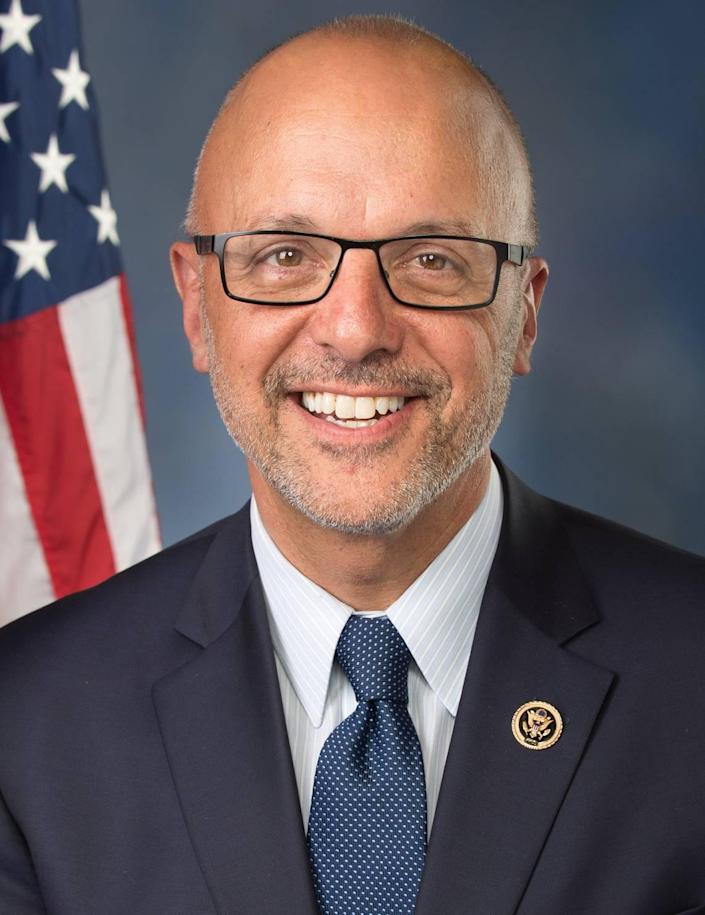The eyes of the world are now on Russia’s unprovoked invasion of Ukraine. But America’s continued negotiations over Iran’s nuclear program and a potential return to the Joint Comprehensive Plan of Action (JCPOA) are also weighing heavily on the minds of many, and we are closely watching.
For the families of Americans wrongfully detained by Iran, the overriding focus is on ensuring that the Biden administration is doing everything it reasonably can to return their loved ones.
For decades, Iran has used hostage-taking and the wrongful detention of Americans and other foreign nationals to gain political leverage — from the U.S. Embassy hostages held for 444 days starting in 1979 to the 2007 abduction of Robert Levinson, the longest held American hostage, to those who are imprisoned in Iran today under false charges and sham convictions.
This is not the foreign policy of a nation; it is the behavior of terrorists. It is time for the international community to show the Iranian regime, once and for all, that this practice will not be tolerated.
Published reports indicate that the United States may be close to re-entering the JCPOA. There will be time to comment on the specifics of the nuclear deal if, and when, it’s reached, but we must focus now on bringing every American home. There are ways to ensure the Iranian regime returns our citizens and Legal Permanent Residents, while at the same time deterring it from doing this to other Americans and foreign nationals again. If the Iranians are desperate for economic relief, we must hit them where it hurts to make this stop — in their pocketbook.
We know Iranian officials are desperately seeking access to frozen funds abroad. But they shouldn’t receive one dime so long as they continue their despicable practice of political hostage taking. Frozen assets should be used to make Iran pay for this illegal behavior. There is precedent to use frozen assets of foreign governments to ensure justice for victims of terror. Last month, President Biden announced that he would free $7 billion in Afghan assets frozen in the United States and seek to split the money between humanitarian aid for Afghanistan and a fund for specific 9/11 victims with outstanding judgments as victims of terrorism.
We should do the same for all victims of Iranian hostage-taking.
By some accounts, the United States has control over at least $11 billion in frozen Iranian assets around the world. Before even considering allowing Iran to access any frozen funds, a portion of those assets should go to the victims of Iran’s hostage-taking — a clear message to the Iranian regime that it is not only unacceptable to unjustly detain Americans for political purposes, but that there will be accountability for these outrageous illegal acts. Families whose loved ones were illegally detained by Iran deserve justice. This money should go directly to families to settle both compensatory and punitive outstanding damages awarded in U.S. courts, and also toward replenishing the already established U.S. Victims of State Sponsored Terrorism Fund. Iran is, and continues to be, the world’s largest state sponsor of terror. Its assets should compensate American victims.
Such a policy would benefit our government, the hostages and their families. It would bring Americans home, guarantee justice is served and ensure that deterring Iran from taking hostages becomes a central part of American policy.
The Iranian regime has demonstrated time and time again that it only responds to pressure. It is not enough to secure the release of our citizens. We must enact policies that deter Iran from continuing to take Americans and other foreign nationals captive.
Former hostages, families of hostages and wrongfully held Americans have experienced unimaginable suffering. Some have won judgments against Iran in U.S. courts, yet are continually forced to find and fight for the assets to pay out these judgments, all while being constantly reminded of the pain these judgments represent. We want to ensure that no other family ever knows the despair of having a loved one wrongfully held abroad.
Most important: Siamak and Baquer Namazi, Morad Tahbaz and Emad Shargi need to come home before Iran can receive any economic benefits of any international agreement; the Levinson family needs the Iranians, once and for all, to account for what happened to Bob Levinson; and all families that have been victims of Iran’s barbaric hostage-taking practices need some semblance of closure.
Let’s use this moment — right now — to close one chapter on their pain so they can move on with a modicum of justice.
U.S. Rep. Ted Deutch represents Florida’s 22nd congressional district. Sarah (Levinson) Moriarty is the daughter of Bob Levinson, the longest-held American hostage.








